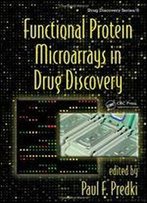
Diabetes Mellitus (methods In Molecular Medicine)
by Sabire Özcan /
2003 / English / PDF
1.4 MB Download
Diabetes mellitus is the collective name for a group of diseases
associated with hyperglycemia (high levels of blood glucose) caused
by defects in insulin p- duction, insulin action, or both. About 6.
2% of the US population (17 million people) have diabetes mellitus.
It is the leading cause of kidney failure, bli- ness, and
amputations. It is also a major risk factor for heart diseases,
stroke, and birth defects. Diabetes Mellitus: Methods and Protocols
provides a state-of-the-art account of the experimental methodology
for studying the molecular defects leading to diabetes mellitus,
both at the molecular and biochemical levels. The chapters cover a
wide range of topics written by experts in their respective fields
and are organized in two sections: Insulin Production and Insulin
Action. The detailed experimental protocols presented, including
the notes of interest, provide a very useful tool for basic
researchers and clinicians for investigating and treating this
disease. Each chapter starts with an introduction to a specific
technique and explains its application in the field of diabetes
research. Following the list of materials, a detailed description
of the technique is presented in the methods section in a way that
enables the successful execution of the protocol. The “Notes”
section at the end discusses the pitfalls of the technique and
alternative approaches. I am grateful to the numerous scientists
who have contributed to this volume by writing both highly detailed
and understandable chapters.
Diabetes mellitus is the collective name for a group of diseases
associated with hyperglycemia (high levels of blood glucose) caused
by defects in insulin p- duction, insulin action, or both. About 6.
2% of the US population (17 million people) have diabetes mellitus.
It is the leading cause of kidney failure, bli- ness, and
amputations. It is also a major risk factor for heart diseases,
stroke, and birth defects. Diabetes Mellitus: Methods and Protocols
provides a state-of-the-art account of the experimental methodology
for studying the molecular defects leading to diabetes mellitus,
both at the molecular and biochemical levels. The chapters cover a
wide range of topics written by experts in their respective fields
and are organized in two sections: Insulin Production and Insulin
Action. The detailed experimental protocols presented, including
the notes of interest, provide a very useful tool for basic
researchers and clinicians for investigating and treating this
disease. Each chapter starts with an introduction to a specific
technique and explains its application in the field of diabetes
research. Following the list of materials, a detailed description
of the technique is presented in the methods section in a way that
enables the successful execution of the protocol. The “Notes”
section at the end discusses the pitfalls of the technique and
alternative approaches. I am grateful to the numerous scientists
who have contributed to this volume by writing both highly detailed
and understandable chapters.











